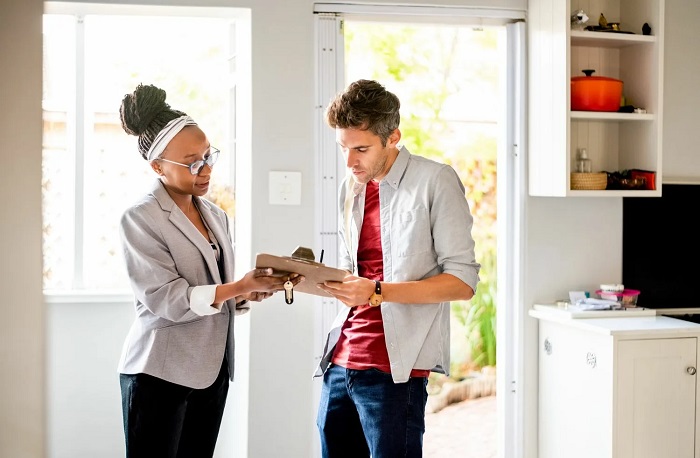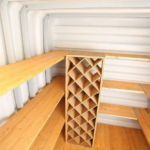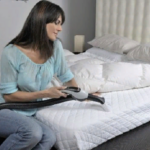When searching for a new rental home, the monthly rent is the figure that most people focus on. It is the largest single expense, but it is far from the only one. Many renters, especially those new to the market, are surprised by the number of other costs that can arise before, during and after their tenancy. These additional expenses can put a significant strain on your budget if you are not prepared for them.
Looking beyond the advertised rent is important for a clear financial picture. From initial one-off payments to recurring monthly bills, a range of costs can accumulate. A full awareness of these potential charges allows for better budgeting and helps avoid financial stress down the line, ensuring a smoother rental experience.
Initial payments and moving expenses
Before you even receive the keys to your new home, you will need to pay a substantial amount upfront. The largest of these is the security deposit, which is typically equal to one month’s rent. This payment acts as security for the landlord to cover potential damages or unpaid rent. Alongside the deposit, you will almost always be required to pay the first month’s rent in advance. This means you should be prepared to pay the equivalent of two months’ rent before moving in.
Other initial costs can include the physical act of moving. Expenses for hiring a van, engaging professional movers and purchasing packing materials can add up. Some properties, particularly in managed apartment blocks, may have move-in fees. It is also wise to clarify if there are any administrative charges from a letting agent before you sign an agreement.
Monthly bills beyond the rent
Your monthly rent payment is just one part of your regular housing expenditure. In most tenancies, you will be responsible for a range of other bills. These typically include utilities like electricity and gas, which are rarely covered by the rent. The cost of these can vary greatly depending on your usage and the energy efficiency of the property.
Other common monthly or recurring costs to budget for include:
- Waste collection: Bin charges are often a separate expense that the tenant must arrange and pay for.
- Internet and television: You will usually need to set up and pay for your own broadband and television packages. If you have a TV, a separate annual licence fee is also required. gov.ie 2025 guidance explains the requirement.
- Parking: A parking space is not always included with a rental property, especially in urban areas. This can be a considerable extra monthly cost if you need one.
- Service charges: In some apartment complexes, you may be responsible for service charges that cover the maintenance of communal areas, though this should be specified in your lease.
Furnishing and upkeep responsibilities
The condition of a property when you move in has a major impact on your overall costs. An unfurnished property usually has a lower monthly rent, but it requires a significant initial investment to buy everything from beds and sofas to kitchen appliances and cutlery. Even a partly furnished property might be missing key items that you will need to purchase.
While landlords are responsible for major structural repairs, tenants are often expected to handle minor upkeep. This can include tasks like replacing lightbulbs, managing garden maintenance or dealing with small cosmetic issues. Your tenancy agreement should clearly define your responsibilities and those of the landlord. Reading this document carefully before signing can prevent future disagreements about who pays for what.
A practical scenario of unexpected costs
Consider a tenant who finds a flat with a very attractive monthly rent. The building is older, but the apartment seems to be in good condition. The first few months of summer go by without any issues. When winter arrives, the tenant discovers the flat has poor insulation and single-glazed windows. To stay warm, the heating needs to be on constantly, leading to electricity bills that are much higher than anticipated. This unexpected expense puts a strain on their monthly budget, showing how a property’s features can lead to unforeseen financial pressures.
End-of-tenancy charges
When it is time to move out, further costs can arise. Many tenancy agreements require you to have the property professionally cleaned before you leave. Failure to do so may result in the cost being deducted from your security deposit. Taking detailed photos of the property’s condition when you first move in can provide valuable evidence if any disputes arise later.
A landlord can withhold some or all of your deposit to cover specific issues. These include any rent arrears, unpaid utility bills or damage to the property that goes beyond normal wear and tear. Normal wear and tear refers to the gradual deterioration that happens from living in a property, such as faded curtains or worn carpets, which cannot be deducted. However, significant damage like a broken window or large stains on the floor can lead to deductions.
Budgeting for a rental property requires looking at the complete picture, not just the weekly or monthly rent. Upfront payments, ongoing bills and end-of-tenancy obligations can all add to your total expenditure. A thorough reading of your lease agreement is essential to know exactly what you are responsible for.
Creating a detailed budget that accounts for all these potential expenses is a sensible approach. Setting aside funds for utilities, moving costs and other bills provides a financial cushion. Being aware of the hidden costs of renting is the best way to ensure your tenancy is financially manageable from start to finish.








